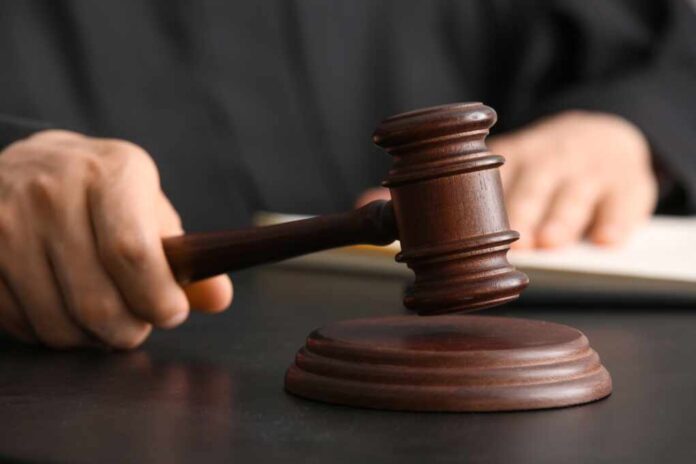
A judge ordered Kilmar Ábrego García’s release, but the U.S. government insists he will “never go free,” highlighting tensions between legal authority and government enforcement.
At a Glance
- Kilmar Ábrego García was mistakenly deported to El Salvador by the Trump administration.
- A Tennessee judge ordered his release, but ICE plans to detain him.
- The Justice Department filed an appeal against the judge’s order.
- The U.S. government declared García would “never go free on American soil.”
Judicial Orders vs. Government Enforcement
Kilmar Ábrego García’s situation is emblematic of the ongoing battle between judicial orders and government enforcement. Initially deported to El Salvador by mistake, García returned to the U.S., sparking a legal battle. A Tennessee judge recently ordered his release while awaiting a federal trial, yet the government, determined to keep him incarcerated, has issued a declaration through the Department of Homeland Security that he “will never go free on American soil.” This statement reflects the complexity of reconciling judicial decisions with federal policy.
The Justice Department quickly appealed the judge’s decision, signaling that a prolonged legal contest looms on the horizon. Prosecutors indicated that upon release, García would be detained by ICE, potentially facing deportation once more, despite an existing ruling from 2019 protecting him from being sent back to El Salvador. These layers of legal maneuvering underscore the challenges posed by García’s case, especially concerning the interplay between domestic legal judgments and overarching federal enforcement strategies.
The Question of Safety and Due Process
Judge Barbara Holmes addressed the concerns surrounding García’s release, stating there was no evidence to suggest he posed an irremediable danger to the community or a flight risk. However, federal authorities remain skeptical, citing potential deportation to another country as a precautionary measure. It’s clear that the current climate of the immigration debate heavily influences García’s case, as illustrated by a Department of Homeland Security spokesperson’s unwavering stance that García is a “dangerous criminal illegal alien”.
“Overall, the Court cannot find from the evidence presented that Abrego’s release clearly and convincingly poses an irremediable danger to other persons or to the community.” – Judge Barbara Holmes
With implications extending beyond García’s case, this scenario challenges the legality of federal interventions in judicial matters and raises questions about the influence of politically charged issues on legal determinations. Despite his defense team’s assertion that the new charges against García—stemming from a 2022 traffic stop in Tennessee where he allegedly misrepresented his activities—are overblown, a wider narrative shapes his case as it resounds throughout the polarized national immigration debate.
What’s Next for García’s Case?
Looking ahead, García’s legal journey remains fraught with uncertainty. While a 2019 court ruling prevents his deportation to El Salvador, the possibility of deportation to another country persists. His attorneys contend that the charges—linked to transporting undocumented migrants under the guise of construction work and other allegations attributed to him—arise from his earlier wrongful deportation, intended to justify a previous administration’s error.
“The Court finds nothing in Abrego’s history to suggest that he is a flight risk. … There is no allegation, much less evidence, that he has intentionally failed to appear in court in the past. Overall, the government simply has not shown a serious risk that Abrego will intentionally avoid appearing as required.” – Judge Barbara Holmes
Only time will reveal the ultimate ramifications of this protracted legal battle, as García—and the public—await this case’s resolution.

























